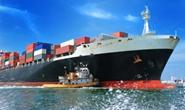Market Data

October 25, 2014
Transportation Report: Ship, Barge, Rail & Truck
Written by Sandy Williams
MID-SHIP Group reports that the two biggest factors impacting the dry cargo freight market right now are U.S. and South American agricultural products and Chinese imports and exports. Expectations for strong exports of agricultural products are high but not much has hit the export market yet. Iron ore imports into China have slowly started to rise, but export of steel from China has not increased.
Coal shipments are of concern to the dry bulk market due to weak global economy, the slowdown in China and an oversupply of ships. MID–SHIP brokers at the Copenhagen Coal conference earlier this month, reported American coal miners are struggling with mine closures and layoffs. Coal demand is weakening in China due to pollution regulations and import tariffs on coal imports.
MID-SHIP notes that low iron ore costs have improved margins for Chinese steel mill resulting in lower steel prices. “Coupled with low freight rates the mills are able to have attractive FOB or CIF prices,” according to the October 22 MID-SHIP Report.
In the Capesize Market, iron ore shipping costs jumped on speculation that Chinese import of iron ore is increasing. The new Chinese coal taxes caused cape rates to fall in the last two weeks but a free custom tax agreement on Australian coal, signed last week, is expected to increase shipping prices as the Chinese face a colder than usual winter and higher domestic coal prices.
US Barge Traffic
The US barge industry is experiencing its best market in eight years, according to MID-SHIP, due to record cargo volume and higher rates.
Northbound cargos have seen a surge in steel volumes due to increased imports of Chinese cold rolled steel in advance of potential trade case duties. Huge amounts of salt are also shipping north as municipalities replenish stockpiles in anticipation of another severe winter.
Southbound barges are moving record grain yields with grain rates from St. Louis to the U.S. Gulf trading 800 percent of tariff. In an effort to avoid transport problems of last winter, shippers of various commodities are building up inventories.
Rail
Rail traffic was is 4.5 percent year to date from 2013 according to the Association of American Railroads. Shipments of petroleum and petroleum products are up 13 percent ytd while grain shipments are up 16.5 percent.
Truck
Truck tonnage reached an all-time high in third quarter. Tonnage is up 3.2 percent ytd according to the American Trucking Association. Freight rates have increased as trucking companies deal with higher equipment purchasing and operating costs and increased government regulations. Driver shortage continues to be a problem for the industry. Diesel fuel cost dropped to a national average of $3.656/gallon, its lowest level since a July 2, 2012. Fuel surcharges are expected to be in the range of $.55 to $.57 per one way mile.







